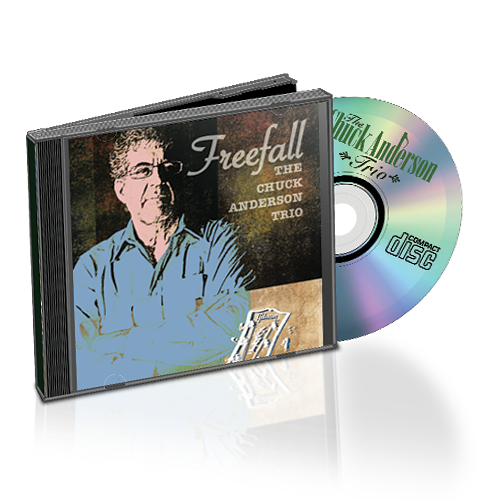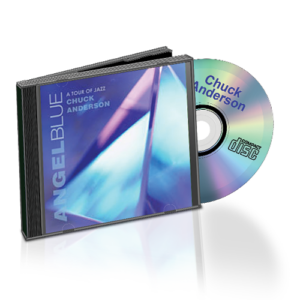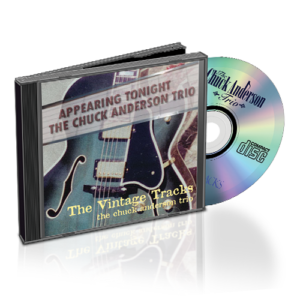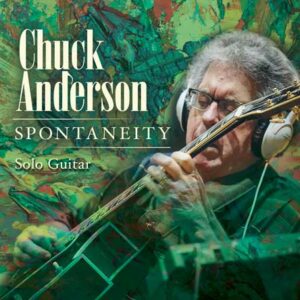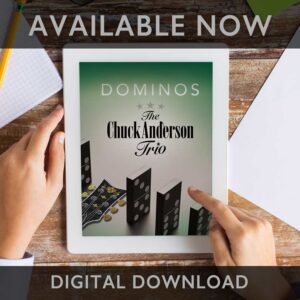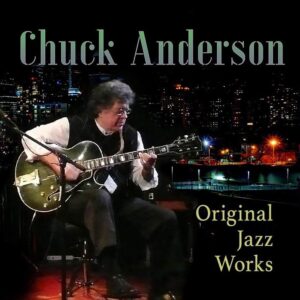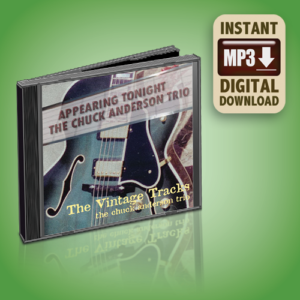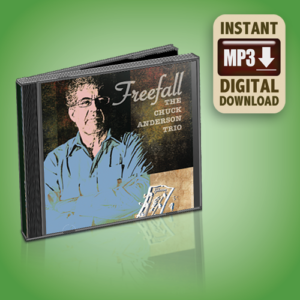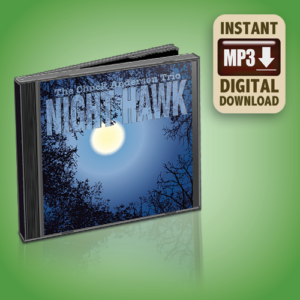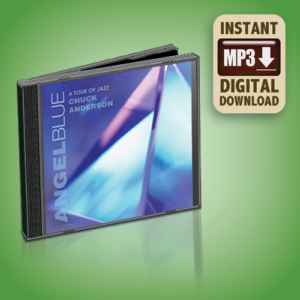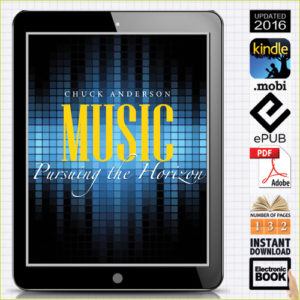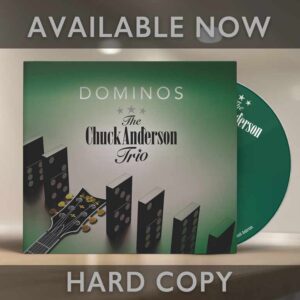Freefall Sampler:
A Sampler of an all original set of modal songs featuring Gerald Veasley on bass, John Swanna on trumpet, Ron Kerber on sax, Ronnie Barrage on drums and percussion and Dan Kleiman on piano
The trio consists of Chuck Anderson on guitar, Eric Schreiber on 5 string bass and Ed Rick on drums.
The group’s forte is creative, spontaneous interaction and communication within the trio.
Chuck has been called “The Most Distinctive Voice in Jazz Guitar”. His unique use of speed, taste and sensitivity sets him apart from all other jazz guitarists.
Review:
Music After 50 Interview About “Freefall”
1. What makes this album different from anything you’ve done previously.
This album represents the culmination of a long journey. “The Vintage Tracks” represented me as a young, over the top jazz guitarist – lots of brash firepower. The next CD “Angel Blue” showed me more as a composer. It represented a more mature writer and player. After my long absence from the jazz guitar concert world, “Freefall” is an amalgam of young energy and passion as well as mature writing. It’s my favorite CD of the three.
2. Did you write all of the tunes or are there any covers?
All 12 songs are original. Two are solo tracks and ten are in the trio format.
3. What is different about your playing at age 62 than say at age 32?
With the return of my health, I’m now playing younger and more original than I played at age 32.
4. You stopped performing for many years. What inspired you to return to performance?
I had been suffering, unknowingly, from severe obstructive sleep apnea for many years. It drained my energy, stopped my metabolism and caused me to gain an enormous amount of weight. I barely had the energy to teach. When the cause of my problem was discovered, I began sleep therapy with a CPAP machine. With the return of deep sleep, I was able to moderate my eating and begin an exercise regiment. The results of these changes has been a weight loss of 110 pounds. With this renewed energy, I felt that passion and drive that I remember feeling when I was 24 years old.
5. You prefer to play in concert settings over clubs. Talk about why these are better venues not just for the musicians but for listeners?
Clubs have many distractions that don’t serve an audience or the performers well. The wait staff, the bartenders and the fact that so many people are not there to hear the music distracts the performers and those who have come to hear the music. A concert setting is exclusively intended to listen to music. This is a benefit to the performers and to the audience.
6. You call your music “audience friendly, progressive jazz guitar.” This album truly fits this bill. I think it will have tremendous appeal to rock and blues guitar lovers. What about your music is ‘audience friendly’?
I think that it’s important to consider the audience when you perform jazz. This is not a compromise but a balanced perspective concerning volume, repertoire, variety and communication. The jazz world has developed a reputation for unfriendly and distant performers. The audience is the only thing that allows us to do what we do.
7. What type of guitar are you playing on the album?
A custom Gibson L5. The “Green Hornet”
8. Talk about the bass player and drummer. They both sound great. What are their backgrounds?
On Bass, we have Eric Schreiber. Eric is relatively new to the jazz world but has excellent training, listens well and works interactively and creatively with the trio. Ed Rick on drums brings a wide variety of experience to the band. His percussive work is solid and inspiring.
9. Although you’re a jazz guitar player, most of your students do not study jazz guitar. Is that correct? What else do you teach and play?
My students have a wide variety of interests and directions. I teach to the unique strengths of each student. I deal formally with guitar, bass, piano and songwriting. Music business is another frequent topic of discussion in the lessons. I teach privately as I believe in the power of one on one interaction.
10. Do you teach part time or full time?
Very full time!
10. Do you think that your music is ‘audience friendly’ because you play and have played other styles?
No. It has more to do with the programming of the material and the spontaneity of the perforrmance. I am not a fusion player.
11. What does this album mean for you personally and what do you hope it means for jazz guitar overall?
For me, it’s a return, a rebirth. I hope that it will draw people all over the world to the jazz guitar.
Chuck Anderson’s Digital CDs
Instant Downloads
